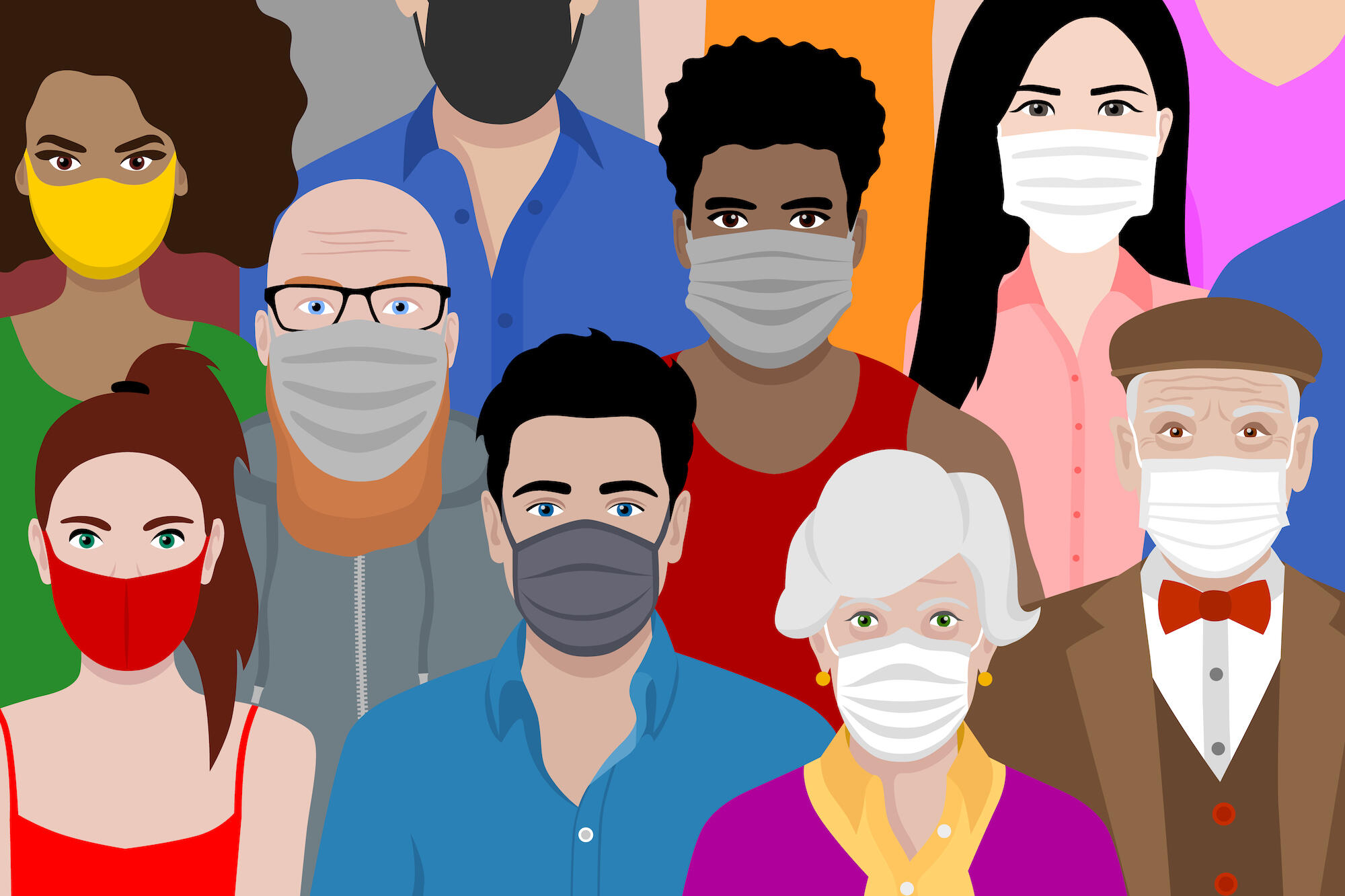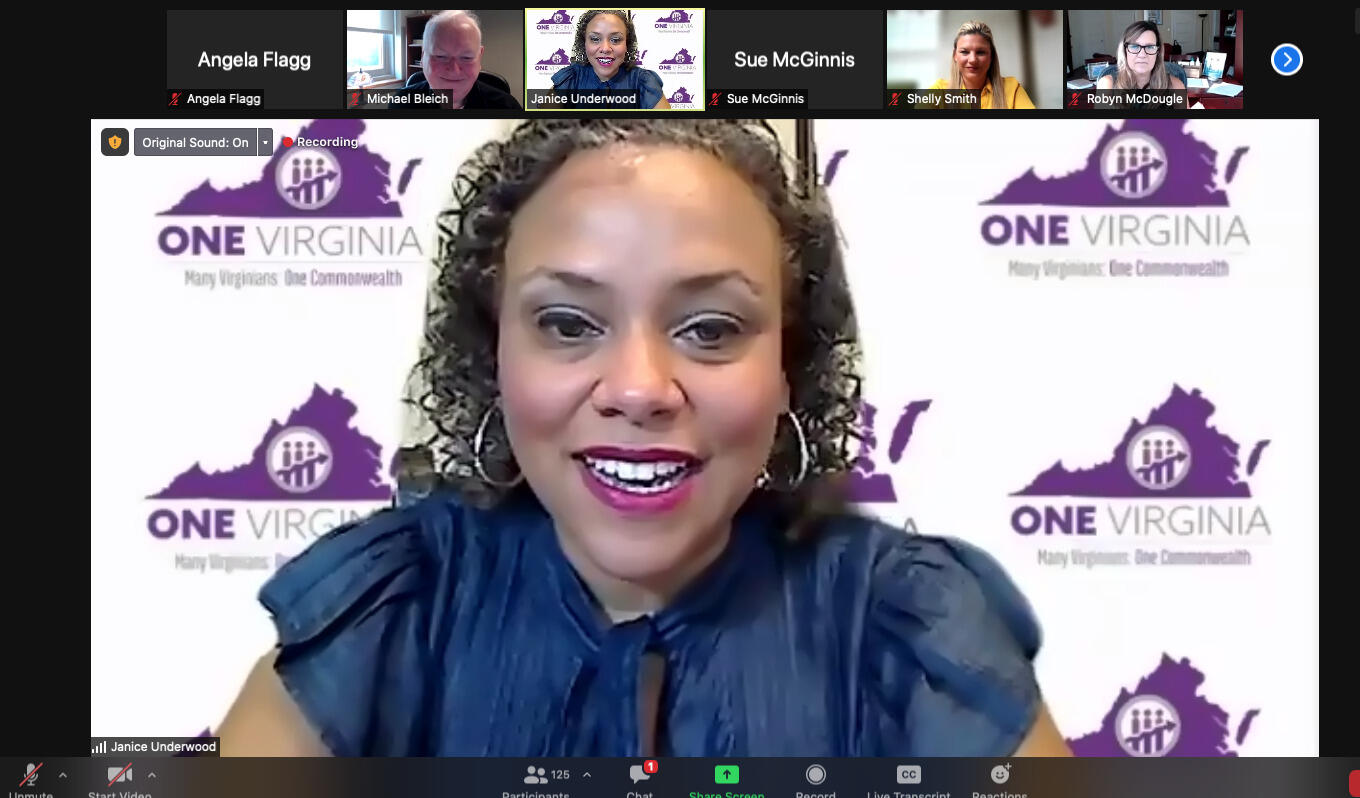
Aug. 27, 2021
Experts convene to explore public policy solutions to address health disparities
Share this story
The COVID-19 pandemic has highlighted numerous ongoing racial and ethnic disparities in the U.S., as evidenced by recent studies including a July poll from Virginia Commonwealth University. A group of scholars at VCU and leaders across Virginia gathered virtually Thursday at a forum to work through solutions for making health care in Virginia more equitable for all by spurring change through public policy.
Before Virginia’s first COVID-19 case, it was already understood that due to structural inequities in health care and health inequity, the pandemic would disproportionately and negatively impact communities of color, communities that lacked consistent access to broadband — specifically in Virginia’s rural regions — and low wealth communities, said Janice Underwood, Ph.D., Virginia’ first cabinet-level chief diversity officer and a keynote speaker at the forum.
“The [equity] task force knew that there would be a vaccine for COVID-19 long before there would be a remedy for structural racism and white supremacy,” Underwood said. “So then it happened in 2020, we had a vaccine for COVID-19 but nothing close to a formidable cure for racism.”
Part of the problem is that the COVID-19 crisis and structural racism are being looked at as two very separate pandemics when they are so intricately involved, she noted.
“In fact, structural racism is the reason why we are struggling with getting through this vaccine rollout because so many people are using this moment to divide us over something that many of you know in public health is just good science,” Underwood said.
The event, “A Virtual Colloquium Addressing Health Equity in Virginia,” convened public policy and health experts to understand the state of health equity in Virginia, explore obstacles to fair and just health care and generate policy solutions that favor the health of all Virginians.
Health disparities stem from economic and social hardships that place community members at risk for avoidable illness, suffering, disability and premature death. With leading medical experts and deep roots in the Richmond area, leaders across VCU and VCU Health are working to address the barriers that prevent people from leading healthy and successful lives.
Event co-sponsors included VCU School of Nursing’s Langston Center for Innovation in Quality and Safety, which focuses on advancing innovative approaches to complex health care problems with solutions that ensure a quality and safe consumer experience, and the L. Douglas Wilder School of Government and Public Affairs’ Center for Public Policy, which aims to advance research and training that informs public policy and decision-making to improve our communities.

Underwood addressed participants on “Framing and Explaining the Journey to the Health Equity Movement,” while fellow keynote speaker Beth O’Connor, executive director of the Virginia Rural Health Association, spoke on “Virginia’s Healthcare Landscape: Where You Live Matters.”
Underwood cited House Joint Resolution 537 that was created in 2021, making Virginia the first Southern state to declare racism as a public health crisis. She said the document provides steps on what to do to address racism.
“This is really important to frame your conversations because now that we have that diagnosis on paper, that needs to enter into our calculus about health equity,” she said.
Underwood also highlighted the ONE Virginia Plan, the state’s diversity, equity and inclusion initiative, and noted the significance of broadening the definition of health equity.
“As a result of the long hard work of our commonwealth, we serve as a case study for the entire nation in how we have expanded the definition of health equity among and social determinations of health to diverse populations around Virginia,” she said.
Connor discussed some of the factors that lead to a shocking disparity in mortality rates for rural Virginians, including education rates, lower access to health care, the poverty rate, access to transportation and the percentage of people incarcerated.
“Rural is not just a mini version of urban,” she said. “We see many outreach initiatives that try to take an urban model and sort of squish them down and make them fit rural.”
“Anybody who has ever driven a tractor knows that smaller is not the same thing,” Connor added.
And contrary to the media’s stereotyping of rural Virginia as white folks in the Appalachian region, there’s a significant African American population, she noted.
“Structural racism equals fewer opportunities to be healthy,” Connor said.
Attendees at Thursday’s event participated in moderated sessions with various leaders from VCU, VCU Health and other universities and organizations across Virginia on what they could do about various factors that influence health equity. Topics included housing, environmental broadband, economic stability, resources available to older adults, telehealth payment models, educational opportunities afforded to communities and risks of substance use created by the opioid epidemic.
Langston Center affiliate scholars and event co-organizers Shelly Smith, DNP, a clinical associate professor and director of graduate clinical programs at the VCU School of Nursing, and Robyn McDougle, Ph.D., an associate professor and associate dean of research and outreach at the Wilder School, shared their hope that attendees would come away with stronger connections across their disciplines. Those connections, they said, could help inform public policy that would allow for the improvement of not just health outcomes but of Virginians’ overall well-being as it relates to poverty, discrimination, education, safety and housing.
Underwood encouraged attendees to follow Virginia’s Equity-in-Action and Equity-at-a-Glance dashboards to monitor progress toward addressing health inequities and see what helps guide decisions for funding.
“I’m charging all of you to really raise your hands and make that good trouble and make sure that we make good decisions, so that when we measure outcomes 5, 10, 15 or 20 years from now that we can have a measurable response and improvement in health equity outcomes,” she said.
Subscribe to VCU News
Subscribe to VCU News at newsletter.vcu.edu and receive a selection of stories, videos, photos, news clips and event listings in your inbox.







